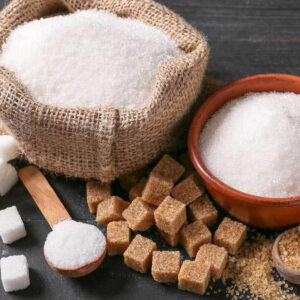Learning about beet sugar vs cane sugar can help individuals decide which suits their needs better.
Learning about beet sugar vs cane sugar can help individuals decide which suits their needs better.
Blog Article
Exploring the Differences in Usages and Benefits In Between Beet Sugar Vs Cane Sugar
In the culinary globe, the option in between beet sugar and cane sugar is not merely regarding sweet taste however includes a nuanced consideration of taste, application, and influence. While both sugars stem from different plants, each undergoes distinct manufacturing processes that subtly affect their features and suitability for different meals.
Origins and Manufacturing Procedures of Beet and Cane Sugar

Walking stick sugar, on the other hand, comes from the sugarcane plant, an exotic yard indigenous to Southeast Asia but now grown in tropical areas worldwide - beet sugar vs cane sugar. The production of cane sugar starts with the harvesting of cane stalks, which are crushed to launch the juice.

Nutritional Content and Health Considerations

When comparing the dietary web content of beet sugar and cane sugar, it comes to be obvious that both kinds essentially provide the exact same caloric values, with around 16 calories per tsp and no considerable nutrient variety. Both sugars, when eaten in excess, can add to raised blood sugar levels, a danger variable for diabetic issues and various other metabolic disorders. From a health point of view, moderating consumption of any kind of kind of sugar, whether from beet or cane, is suggested to stay clear of these prospective adverse impacts on health.
Taste Profiles and Culinary Applications
Despite their similar chemical structures, beet sugar and cane sugar vary discreetly in flavor, which can affect their use in various culinary contexts. Cane sugar typically carries a hint of molasses, even in its polished type, offering a warm, caramel-like touch that enhances baked goods, coffee, and i loved this chocolate-based recipes. This slight molasses taste is particularly valued in the cooking industry for including depth to sweets and breads. On the various other hand, beet sugar is characterized by its very fine-tuned, neutral preference, making it a versatile sweetener that does not change the taste accounts of dishes. This nonpartisanship is particularly beneficial in delicate dishes, such as light pastries, lotions, and some sauces, where the fundamental flavors of various other ingredients are planned to stand apart. Chefs and food suppliers could pick one type of sugar over the other based on the desired taste result of their culinary productions.
Environmental Influence and Sustainability
While both beet and cane sugars are derived from plants, their environmental influences vary significantly due to the distinct methods of growing and processing required for each. Sugar beet cultivation commonly entails extensive mechanization, which can raise fossil gas usage and carbon discharges.
Furthermore, the processing of sugarcane commonly produces a substantial check amount of waste, consisting of bagasse, which, although functional as biofuel, frequently adds to air contamination if shed inefficiently. Sugar beet handling uses more of the raw products, resulting in much less waste. Both sectors deal with obstacles in minimizing their ecological footprints, yet continuous technologies in farming methods and waste administration are aiming to enhance sustainability.
Economic Elements Affecting the Sugar Market
The economic characteristics of the sugar industry are considerably influenced by worldwide market needs and trade policies. In regions where sugarcane or sugar beet production is subsidized, manufacturers might have an economic benefit that allows them to offer lower costs on the global market.
Additionally, changes in international need for sugar, affected by dietary trends and commercial usage in foodstuff, straight impact prices and production levels. beet sugar vs cane sugar. Weather problems likewise play a crucial role, as they can substantially influence crop returns and, as a result, the supply chain. This variability presents a level of economic unpredictability that can bring about investment volatility in sugar production click to find out more fields, affecting choices from growing to market technique
Final Thought
To conclude, both beet and cane sugar have special high qualities that suit different cooking requirements. While cane sugar conveys a rich flavor perfect for improving baked products, beet sugar's neutrality is ideal for lighter dishes. Nutritional similarities regardless of, their distinctive production procedures and ecological impacts add intricacy to the option between them. Hence, comprehending these differences helps chefs and consumers make informed choices that straighten with their health, culinary, and moral preferences.
Report this page